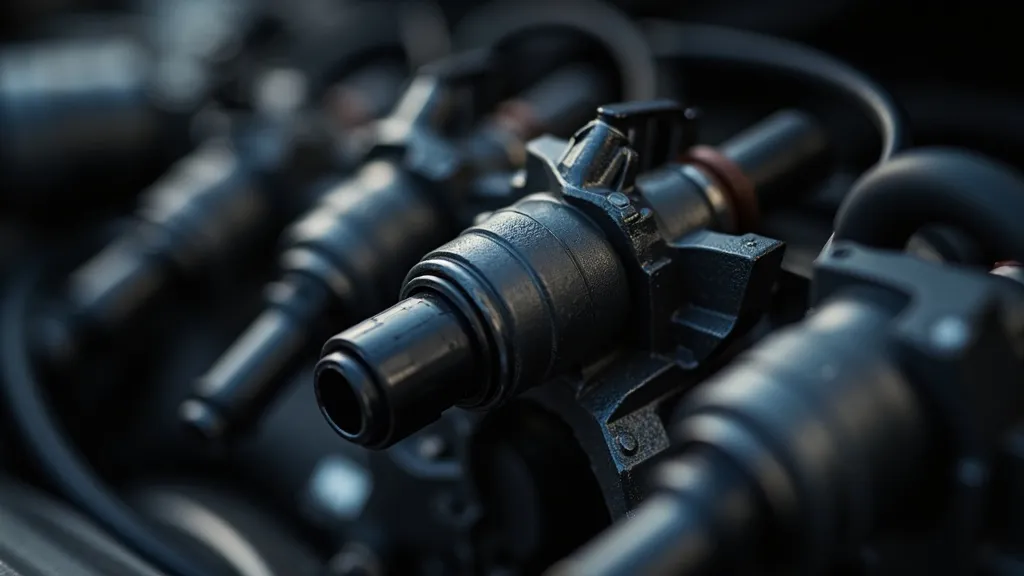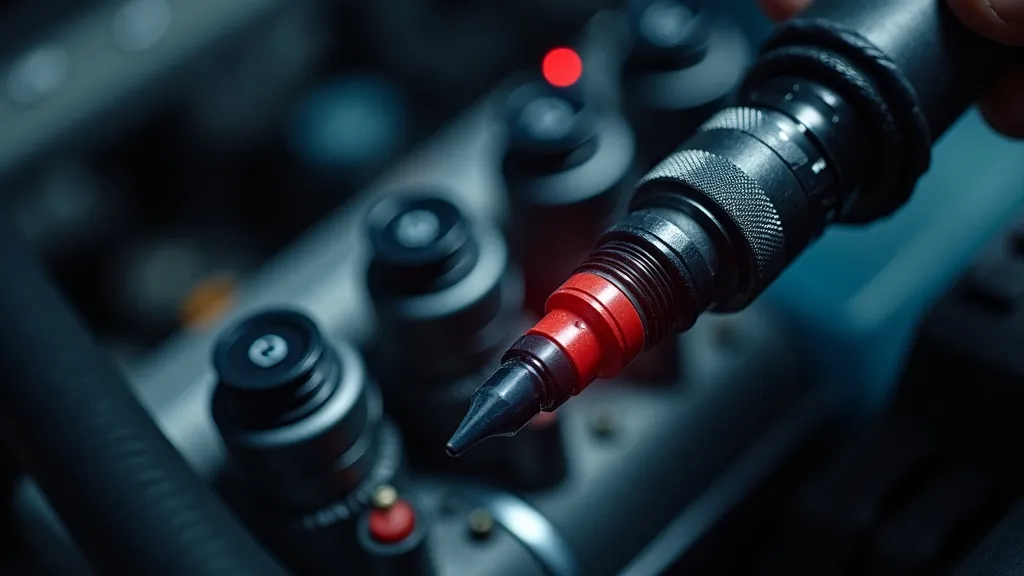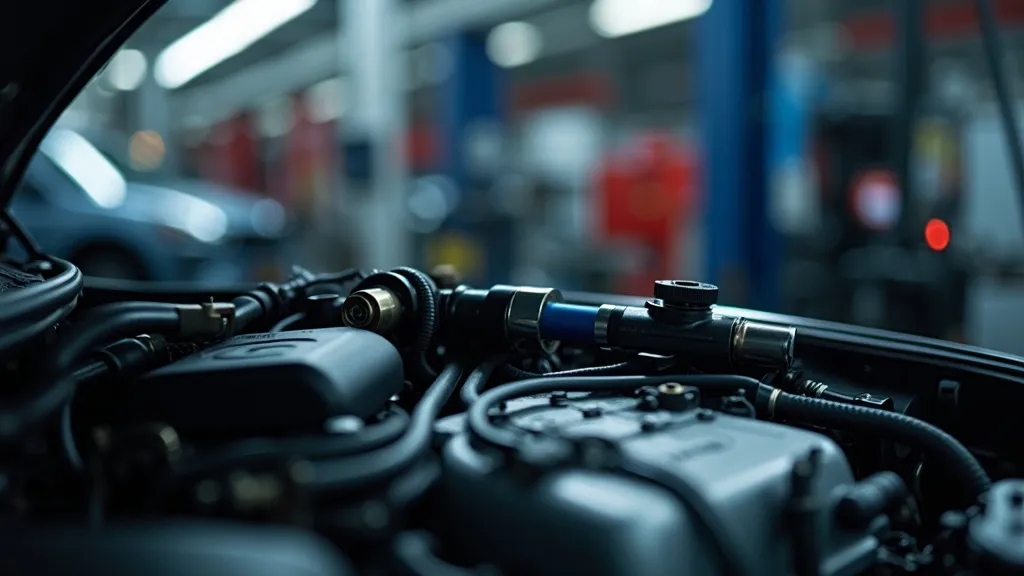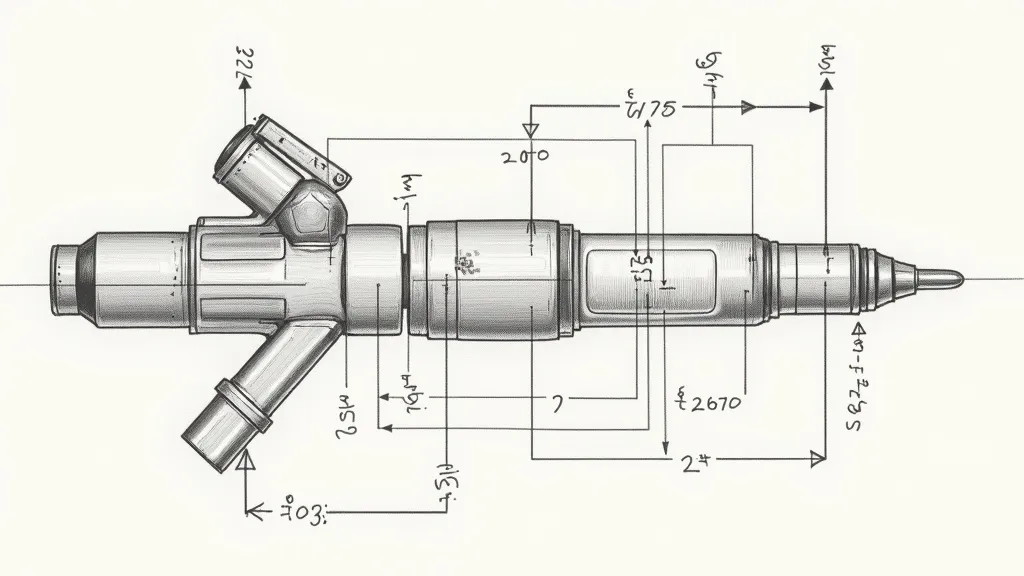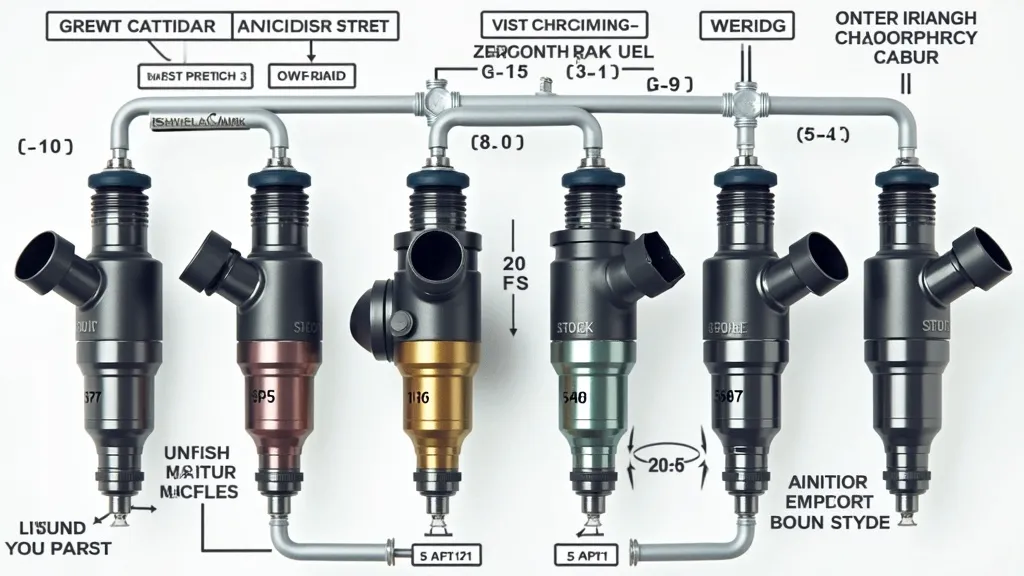Understanding Fuel Injector Correction
Fuel injector correction is a critical maintenance task that ensures the optimal performance of an engine by adjusting the injector's spray pattern and flow rate. This article delves into the intricacies of fuel injector correction, highlighting its importance, methodologies, and the impact on vehicle performance and efficiency. By maintaining the precise calibration of fuel injectors, vehicles can achieve better fuel economy, reduced emissions, and enhanced engine longevity.
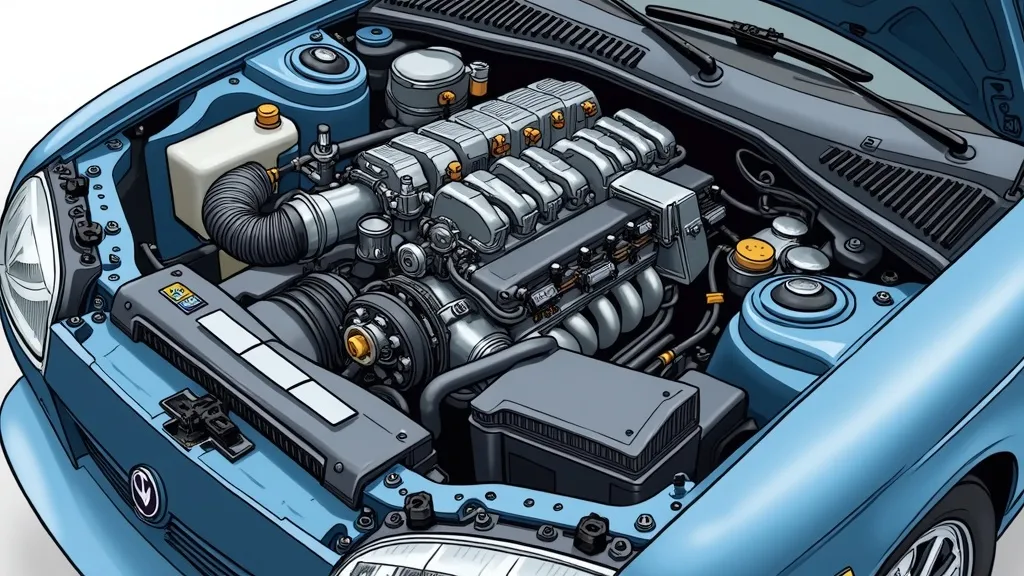
Introduction to Fuel Injector Correction
Fuel injector correction, often referred to as "Коррекция Форсунок" in some regions, is an essential process in automotive maintenance that focuses on optimizing the performance of fuel injectors within an engine. This procedure involves adjusting the injectors to ensure that the fuel spray pattern and flow rate align with the engine's requirements, thereby improving combustion efficiency. The significance of fuel injector correction extends beyond mere performance enhancement; it plays a crucial role in maintaining the overall health of the engine, ensuring longevity, reliability, and environmental compliance.
Fuel injectors are responsible for atomizing fuel and delivering it into the combustion chamber at the precise moment for optimal combustion. Their functionality is paramount for achieving the desired power output and efficiency from an engine. As vehicles age and accumulate miles, the performance of fuel injectors can degrade, necessitating corrective measures to restore their functionality. In this article, we delve deeper into the methodologies, benefits, and challenges of fuel injector correction, providing a comprehensive understanding of its importance in automotive maintenance.
The Importance of Fuel Injector Correction
Fuel injectors play a pivotal role in delivering the precise amount of fuel into the combustion chamber at the right time. Over time, injectors can become clogged or drift out of their original calibration due to wear and tear, leading to inefficient fuel delivery. This can cause a range of issues, including poor fuel economy, increased emissions, and even engine misfires. A misfiring engine can not only be frustrating but can also lead to more severe engine damage if left unaddressed.
Correcting fuel injectors can significantly enhance engine performance by ensuring that each cylinder receives the right amount of fuel, thus promoting complete combustion. This not only boosts power output but also contributes to the overall health of the engine by reducing carbon deposits and preventing knock. A well-maintained fuel injector system helps in maintaining a stable engine temperature, reducing the risk of overheating, and ensuring that the engine operates within its designed parameters.
Furthermore, addressing fuel injector issues can lead to improved throttle response, which translates to a more pleasurable driving experience. As the injectors work efficiently, drivers may notice an increase in power during acceleration, making the vehicle feel more responsive and agile. This is particularly beneficial for performance-oriented vehicles where every ounce of power counts. The optimization of fuel injectors is not only about performance; it is also about enhancing the overall driving experience.
Methodologies for Fuel Injector Correction
Various techniques are employed to correct fuel injectors, each tailored to address specific issues:
- Cleaning: Using specialized cleaning solutions or ultrasonic cleaners to remove deposits and restore the injector's flow rate. Cleaning can be a straightforward process that vastly improves injector performance. Cleaning solutions break down carbon deposits, varnish, and other contaminants that accumulate over time, allowing the injectors to spray fuel more effectively.
- Flow Testing: Assessing the injectors' performance on a test bench to ensure uniform fuel delivery across all cylinders. Flow testing can identify weak injectors that may not be delivering fuel at the required rate, leading to imbalances in engine performance. A flow test helps ensure that all injectors are functioning similarly and can help diagnose issues that may not be apparent during regular operation.
- Electronic Calibration: Adjusting the electronic control unit (ECU) settings to fine-tune injector operation based on sensor feedback. This method involves sophisticated diagnostic tools that communicate with the vehicle's computer system. By analyzing data from various sensors, technicians can make precise adjustments to ensure optimal injector performance under varying driving conditions.
Impact on Vehicle Performance
Properly corrected fuel injectors can lead to significant improvements in vehicle performance. Drivers may notice smoother acceleration, reduced engine noise, and improved throttle response. Additionally, by optimizing the air-fuel mixture, vehicles can achieve better fuel economy and lower emissions, which is particularly important in regions with stringent environmental regulations. Improved fuel economy translates to savings at the pump, making regular maintenance of fuel injectors not only beneficial for performance but also for the wallet.
Moreover, a well-tuned fuel injector system can enhance the overall driving experience by providing a more consistent power delivery. This is especially noticeable in vehicles that are used for towing or carrying heavy loads, where efficient power delivery is crucial for maintaining speed and handling. Drivers will appreciate the added confidence that comes with knowing their vehicle is operating at peak efficiency, particularly in challenging driving conditions.
Additionally, correcting fuel injectors can have a positive impact on emissions control. Vehicles that are properly tuned and maintained are less likely to produce harmful emissions, contributing to cleaner air and compliance with environmental standards. This is particularly relevant as many regions worldwide are implementing stricter emissions regulations, and vehicle owners must ensure that their cars meet these requirements to avoid penalties and fines.
Challenges and Considerations
While fuel injector correction offers numerous benefits, it is not without challenges. The process requires specialized equipment and expertise to avoid damaging the injectors during cleaning or calibration. For instance, improper handling during ultrasonic cleaning can lead to physical damage to the injector components, rendering them unusable. Furthermore, the intricacies of modern fuel injection systems mean that even minor errors in calibration can lead to significant performance issues.
Moreover, incorrect adjustments can lead to further engine issues, emphasizing the importance of professional intervention. Technicians must be familiar with the specific requirements of different engines and fuel systems to avoid common pitfalls. For instance, some vehicles may require specific cleaning agents or methods based on their fuel system design. This level of expertise is not typically available to the average car owner, highlighting the necessity of professional services for effective fuel injector correction.
Another consideration is the cost associated with fuel injector correction. While the long-term benefits often outweigh the initial investment, vehicle owners should be aware of the potential costs involved in professional cleaning, flow testing, and calibration. It is essential to weigh these costs against the benefits of improved performance and efficiency when making decisions about maintenance.
Comparison of Fuel Injector Correction Techniques
| Technique | Advantages | Disadvantages |
|---|---|---|
| Cleaning | Restores flow rate, cost-effective, can be done relatively quickly. | May not address all issues, limited effectiveness on severely clogged injectors. |
| Flow Testing | Accurate performance assessment, identifies weak injectors, ensures uniformity. | Requires removal of injectors, can be time-consuming and labor-intensive. |
| Electronic Calibration | Precise adjustments, improves efficiency, adapts to various driving conditions. | Complex, requires expertise, may necessitate software updates or specialized tools. |
FAQs
Q: How often should fuel injectors be corrected?
A: It is recommended to inspect fuel injectors every 30,000 to 50,000 miles, or whenever there are noticeable symptoms of poor engine performance. Regular inspections can help catch minor issues before they escalate into more significant problems, ensuring the injectors remain in optimal condition.
Q: Can I perform fuel injector correction myself?
A: While basic cleaning can be attempted at home, professional correction is advised for accurate results and to avoid potential damage. Many car owners may not have the necessary tools or knowledge to perform a comprehensive assessment of injector performance, making professional services a safer choice.
Q: What are the signs of a faulty fuel injector?
A: Common signs include rough idling, increased fuel consumption, difficulty starting the engine, and noticeable changes in engine performance. If you experience any of these symptoms, it is essential to have your fuel injectors checked promptly to avoid further damage to your engine.
Q: How does fuel injector correction contribute to environmental sustainability?
A: By ensuring efficient fuel combustion, corrected injectors reduce emissions, contributing to cleaner air and compliance with environmental standards. This is increasingly important as global awareness of environmental issues grows, and consumers seek ways to reduce their carbon footprint.
Conclusion
Fuel injector correction is a vital aspect of automotive maintenance that ensures optimal engine performance and efficiency. By understanding the process and its benefits, vehicle owners can make informed decisions to maintain their engines' health and contribute to environmental sustainability. Correcting fuel injectors not only improves vehicle performance but also plays a significant role in reducing harmful emissions, thereby benefiting the planet.
Whether performed as a preventive measure or in response to specific issues, fuel injector correction is an investment in the longevity and performance of any vehicle. As technology evolves, so too do the methods and techniques for maintaining fuel injectors, emphasizing the importance of staying informed about the latest advancements in automotive care. The future of fuel injector technology also hints at further innovations that could lead to even greater efficiency and performance, making it an exciting field for both automotive enthusiasts and everyday drivers alike.
In summary, fuel injector correction is not just a routine maintenance task; it is a crucial component of vehicle ownership that can lead to enhanced performance, improved fuel efficiency, and reduced environmental impact. By prioritizing this aspect of vehicle maintenance, owners can ensure a smoother, more reliable, and more sustainable driving experience for years to come.






